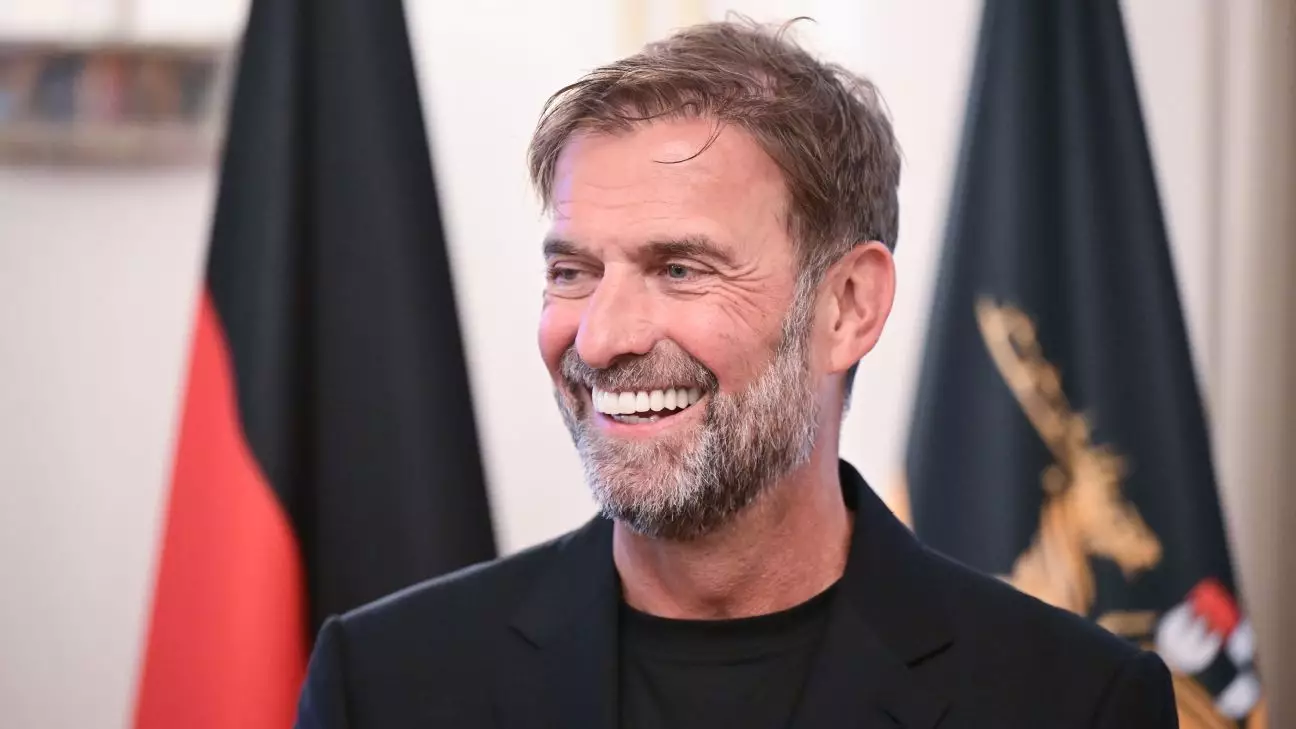Jürgen Klopp has long stood as a towering figure in the world of football, renowned for his infectious charisma and managerial acumen. After nearly a decade away from German football, he made headlines once again by accepting a role as “global head of soccer” with the Red Bull football network. This decision came as a surprise to many, particularly given the contentious reputation associated with RB Leipzig and its corporate backing. While Klopp is known as a people’s coach, his alignment with an entity that many traditional fans regard as a pariah raises questions about integrity and the clash between commercial interests and football’s grassroots ethos.
The paradox of Klopp’s decision is striking. Having built a career characterized by passionate engagement and a focus on community, his choice to work with Red Bull—a company often perceived as emblematic of corporate encroachment on sport—has been met with skepticism. The warm reception he receives in England contrasts starkly with the backlash in Germany. By selecting this path, one can’t help but ponder whether Klopp is risking his rapport with fans who have come to see him as a symbol of football loyalty and authenticity.
A significant aspect of the discourse surrounding Klopp’s move is how it reflects differing cultures in English and German football. In England, sentiments of goodwill and understanding prevail, with many seeing Klopp’s transition simply as the natural evolution of a successful career. Conversely, the German response reveals a deeper discomfort, rooted in a historical reverence for tradition and the structure of club ownership. The 50+1 rule—a regulation that mandates clubs be majority-owned by their members—stands in stark opposition to Red Bull’s model, which many view as monopolistic.
The ramifications of Klopp’s association with RB extend beyond personal reputation; they spotlight broader issues regarding the commercialization of football in Germany. Clubs like RB Leipzig, which emerged from a strategic acquisition and management under Red Bull, are often seen as undermining the integrity of the sport. As fans grapple with growing commercialism, Klopp’s decision to engage with such an entity feels like a betrayal to many. The cover of Kicker magazine, which called his move a “Kultur-Schock,” and online polls revealing 72% disapproval reflect a palpable discontent among supporters.
Amidst the uproar, Klopp’s decision showcases the complexities of modern football management. With RB Leipzig, RB Salzburg, and New York Red Bulls, Klopp undoubtedly has the opportunity to influence a wide network of clubs, fostering a new kind of football philosophy. Yet, this collaboration raises fundamental questions about the ethical implications of prioritizing commercial success over traditional values.
For Klopp, this appears to be a calculated risk. By taking on the role of working closely with clubs promoting innovative structures and methodologies, he can impact the football landscape on a larger scale. He relishes the chance to learn and grow, which indicates a willingness to adapt and explore new horizons. However, the reception by the public remains fraught with tension, as memories of football’s more romantic past clash with the inexorable advance of commercial interests.
As Klopp forges ahead in his new role, other figures in German football reflect a dynamic landscape reshaping the sport. National team manager Julian Nagelsmann has made significant strides with the German side, crafting a more attractive style of play that embodies modern football. This highlights the evolving nature of managerial philosophies in German football, where the focus is increasingly shifting toward performance-based selection and away from traditional club affiliations.
Moreover, the situation of Pellegrino Matarazzo at TSG Hoffenheim serves as a poignant reminder of the volatility within management circles. His tenure, characterized by mixed results, poses a challenge amidst changing expectations. The pressure on managers is palpable, especially when performance dictates survival—a principle that was once uniquely associated with continuity and tradition in German football.
In navigating his new affiliations and the tumultuous waters of public opinion, Jürgen Klopp is at a crossroads that many in contemporary football face. The intersection of commercialism and tradition complicates the narrative, rendering choices laden with consequences. As he seeks to learn and evolve from his role within the Red Bull framework, both fans and critics alike will be watching closely.
Ultimately, Klopp’s journey through these challenges may help redefine what it means to be a coach in the shifting landscape of modern football. Will he succeed in harmonizing community spirit with the demands of a corporate giant? Or will his foray into the Red Bull network mark a departure from the principles he once embodied? The answers to these questions lie ahead, reflecting the ongoing struggle within football to balance profit with passion, a narrative that continues to evolve.
